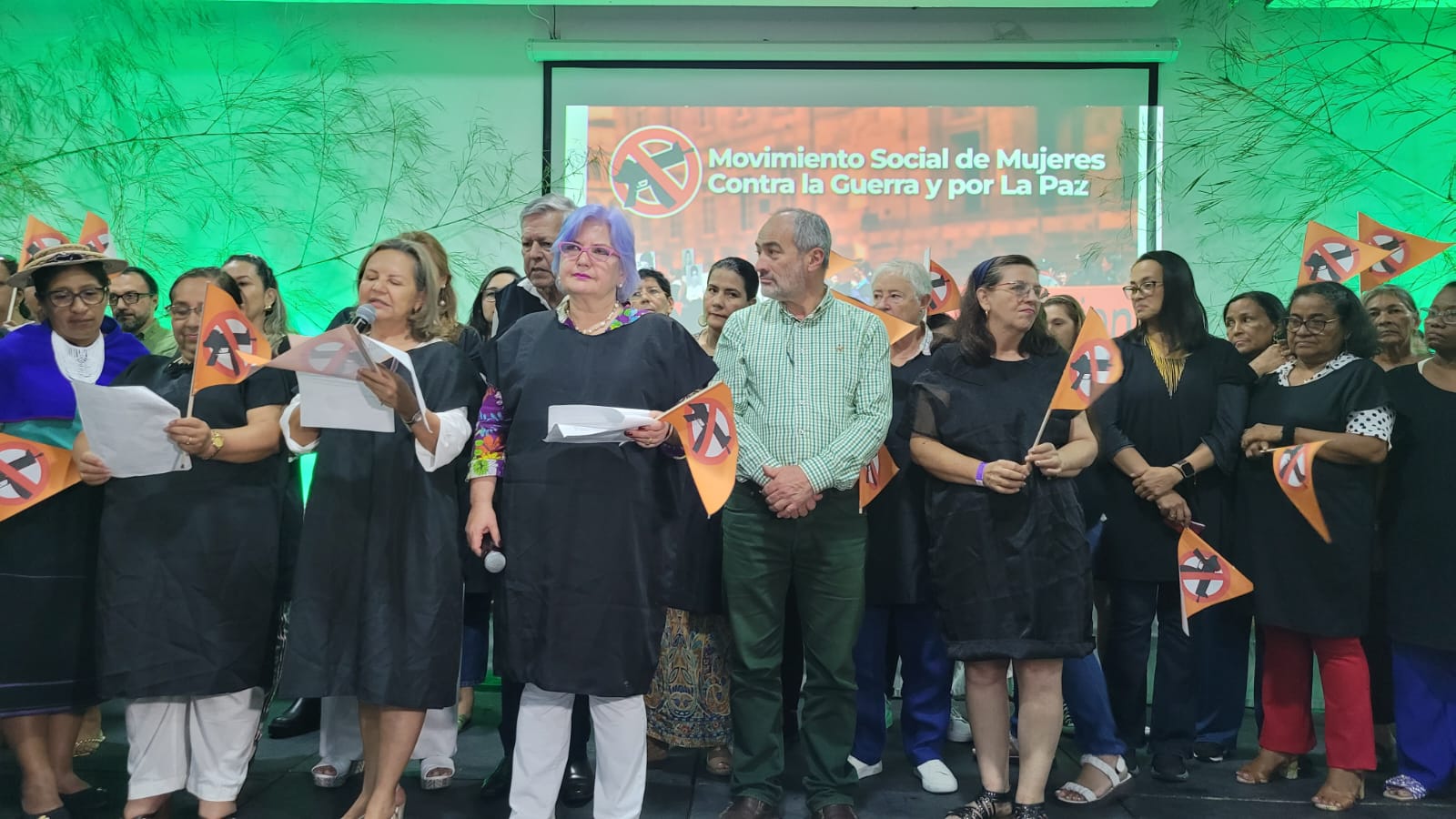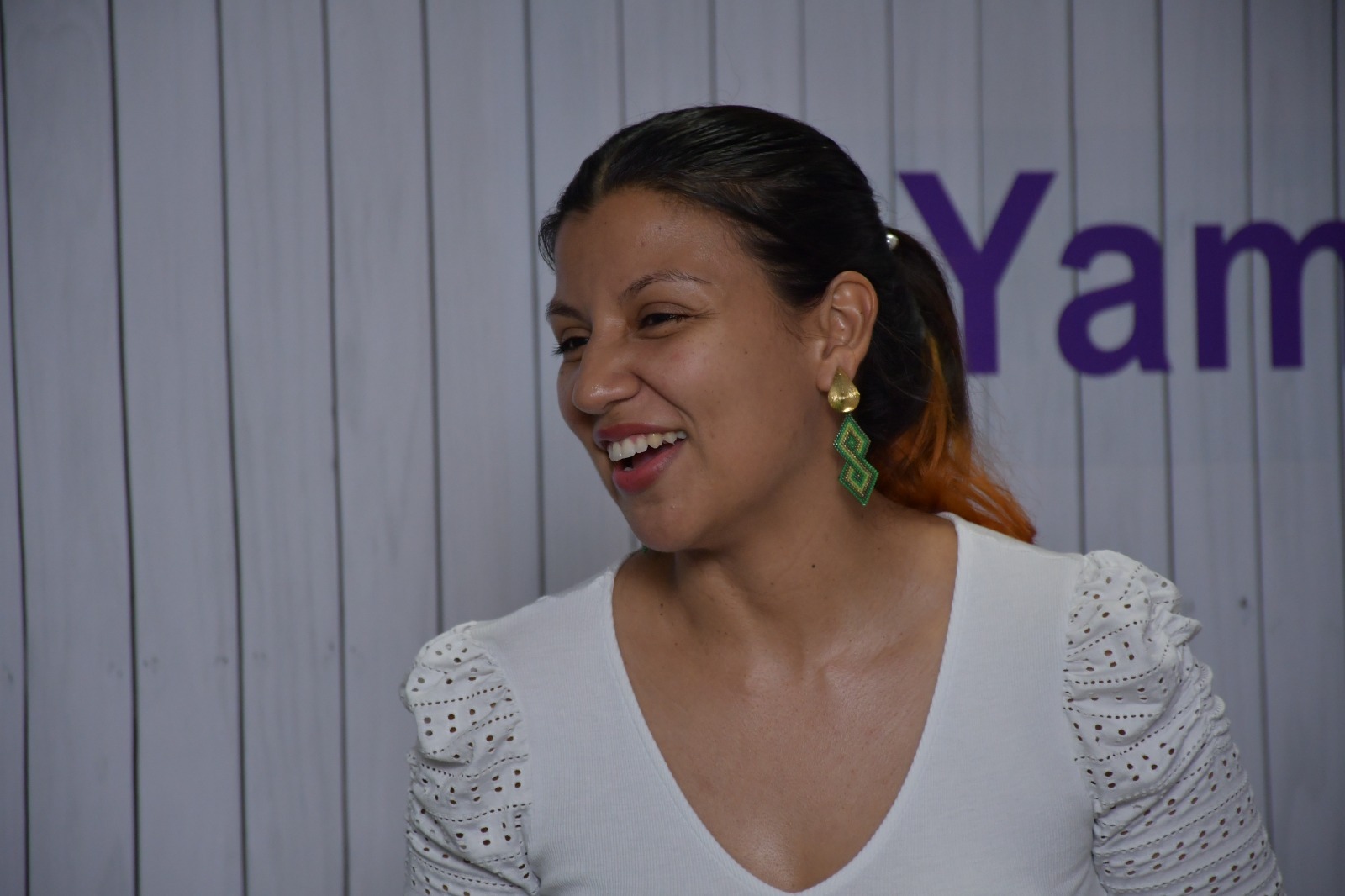“The resilience of women in our country is hard to match. We’ve been demanding peace for decades, coming together and weaving life around us. Our bodies have been at the center of the armed conflict, but so has our peacebuilding work on the front lines.”
Kelly Campo Becerra is a young activist and human rights defender who coordinates the Organización Femenina Popular (OFP), a grassroots civil society organization working to advance the rights of women and girls in the Magdalena Medio, an extensive valley located in north-central Colombia that bore the brunt of the violence during the country’s nearly 40-year internal war.
Rich in oil, gas and coal, the region quickly became a stronghold of the two main guerillas involved in the conflict, which terrorized rural communities, particularly women and girls, to maintain their social hegemony, accumulate land, and secure access to these resource-rich territories.
“Every community in Colombia should be able to remain in their territory without being displaced. Day after day, we’re defending our environment and resisting the indiscriminate exploitation of resources, many times at the cost of our own lives.”
In March 2024, the United Nations Women’s Peace and Humanitarian Fund (WPHF) supported Kelly under its Funding Window for Women Human Rights Defenders to attend the 68th session of the Commission on the Status of Women (CSW68) in New York, where she reiterated that, for those living in the territories, far from Bogotá and other larger urban areas, the war is far from being over, urging the international community to scale up their support to women-led peacebuilding initiatives focused on addressing the root causes of the conflict– in Colombia and around the world.
“To do war, you need a lot of money. To advance peace, you need money too. And we cannot build peace without a comprehensive approach to promoting and protecting the rights of all.”
Since 2018, Kelly and her organization have partnered twice with WPHF – with technical support by UN Women Colombia – to implement a project aiming to advance the leadership and economic autonomy of women and girls living in Yondó, Antioquia, a region plagued by highly masculinized extractive industries, where women still have very limited access to paid work and good-quality jobs. Thanks to the support received from WPHF – made possible through a contribution by Germany’s Federal Ministry of Economic Cooperation and Development (BMZ) – OFP and its more than 2,500 members have been able to provide financial and entrepreneurship opportunities to hundreds of women producers affected by the armed conflict, strengthening their role as community leaders and making them less vulnerable to armed groups.
“Colombia needs more women in leadership positions – women who have the ideas, the initiative, and the tools to drive transformational and sustainable actions. Because when women acquire certain skills and take up space, they remain committed to everyone around them.”

Protecting the territories, promoting environmental rights and climate justice, and advancing sustainable peace are the three pillars that guide the work of OFP, founded over 40 years ago by a group of women leaders in the Magdalena Medio. Photo: Courtesy of Kelly Campo Becerra
Born in Barrancabermeja, a city in Antioquia besieged by massacres, kidnappings, forced displacement and rampant poverty for decades, Kelly refuses to speak about the war in past tense. Every day, she says, new actors are joining the conflict in different parts the country, targeting civil society activists, particularly women and indigenous leaders, and undermining the work of women’s organizations like OFP, which remain at the forefront of the fight for peace in Colombia.
Despite these challenges, Kelly has witnessed firsthand the impact of her partnership with WPHF on the ground, mobilizing women and girls in remote areas that were previously hard to reach and giving them the tools to meaningfully engage in community-led peacebuilding activities. This work was, as she puts it, the “perfect social research” to learn more about the issues marginalized women face on the ground, help them respond to those challenges, and reinforce their role in strengthening the social fabric in their communities.
“Peace goes far beyond negotiations and silencing the guns – it’s the right for us, women, to remain in our homes, the right to have social justice, the right to enjoy gender equality, and the right to ensure that our human rights are fully respected.”
For Kelly, investing in women is, above all, investing in the collective power and expertise of those who’ve been in the territories for years, designing and putting forward solutions to break Colombia’s never-ending cycle of violence and instability. However, as she points out, money is just part of the support. For peace to prevail, the international community must also be there, in the territories, following what’s happening on the ground and providing support – not just financial, but also political, social, and emotional – to women peacebuilders, humanitarians and human rights defenders.
